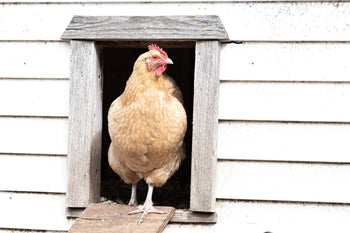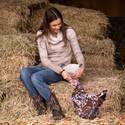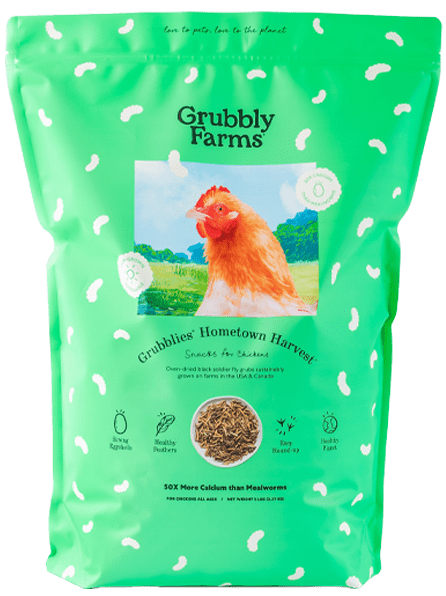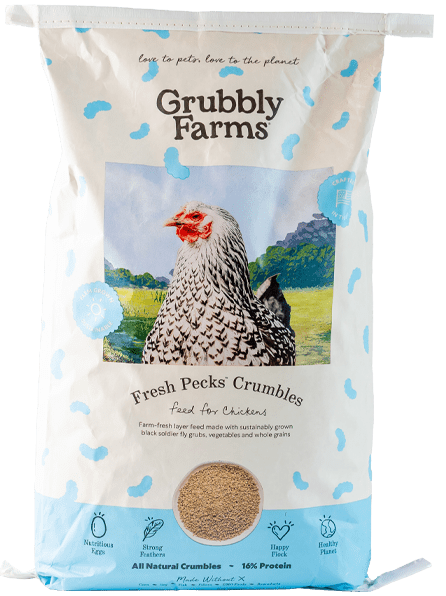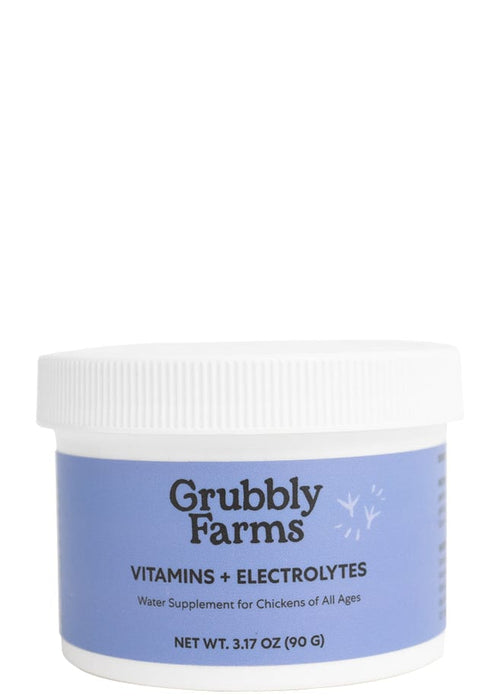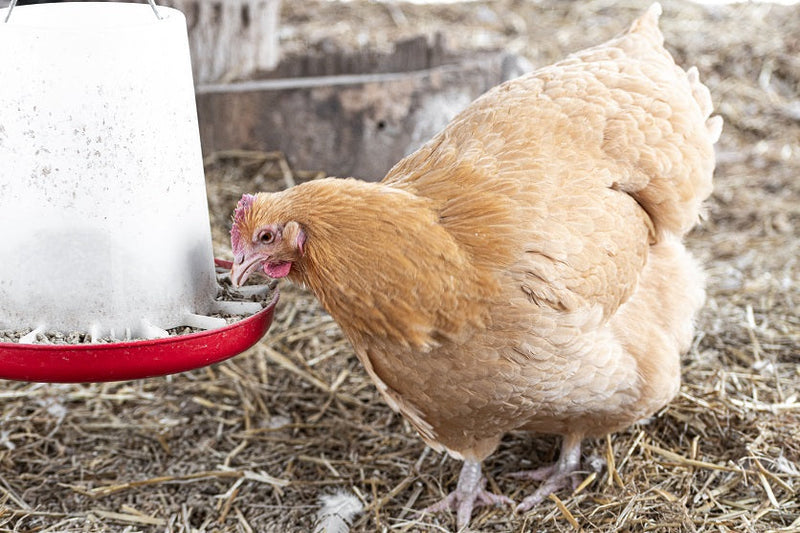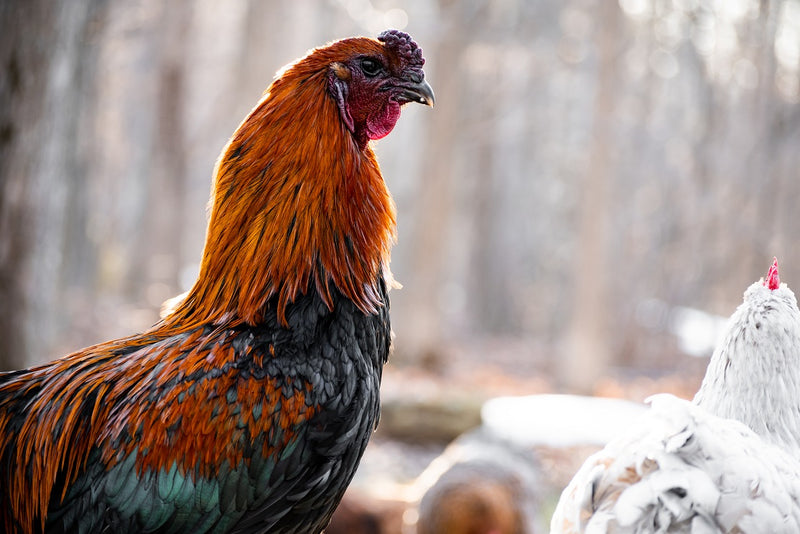Preparing Your Chickens for Your Time Away
As with any pet, chickens need to have their daily needs met on a regular basis. However, chickens can be fairly self-sufficient, which can make it easier for when you need to leave them unattended. There are a few management tips and preparation steps you should take before leaving your flock for extended periods of time. Having your flock properly prepared for your time away can alleviate any worry you might have about the well-being and safety of your chickens while you’re on vacation.

How Long Can You Leave Chickens Alone?
Chickens can be left unattended for several days and be none the worse for wear with proper preparation. You can also leave your flock for extended periods of time, however, enlisting the help of a flock sitter is recommended for the health and well-being of your flock.
Short Vacations (1-3 Days)
Chickens can usually fend for themselves without being tended to for a short period of time. Additionally, most coops can be prepped enough to ensure your flock can meet their daily needs even without daily care for up to three days. The necessities that chickens need daily include free-choice food, access to fresh water, plenty of space to move around, and protection from predators and the elements. As long as your chicken coop provides these basic necessities, your flock can be self-sufficient.
For guidelines on how big of a coop your flock needs, check out How Big of a Chicken Coop Do I Need?. And for tips on predator-proofing the chicken coop, we cover that in Common Chicken Predators and How to Prevent Them.
Longer Vacations (4-7 Days)
Chickens can be left for longer periods of time, however, it requires more preparation and you may consider finding a chicken sitter. Chickens can instinctively fend for themselves indefinitely, however, resources in the coop will limit how long your flock can remain self-sufficient without care.
The longer chickens are left unattended, the more food and water they will consume. This may require that you plan for leaving your flock with larger or multiple feeding and watering systems. Another thing to plan for when leaving your flock for long periods of time is droppings management. If the daily droppings are not cleaned or managed on a regular basis, they can build up and cause health hazards for your flock.
Enlisting the help of a chicken sitter and outfitting your coop with more automation may be necessary when leaving your flock for periods of time longer than three days. Automated tools and gadgets can be installed at the chicken coop to provide your flock with basics, like food, water, and protection. However, a chicken sitter can be helpful for managing droppings in the coop and ensuring that food and water resources don’t run out while you are away.
Risks of Leaving Chickens Alone for Too Long
There are several risks associated with leaving chickens alone for too long. As long as you are aware of the risks, you can take steps to eliminate them when you are planning to leave your flock for extended periods of time.
- Potential Issues with Predators- Human activity can often deter predators, but when you are away and there is no human activity around the coop, predators may become bolder.
- Running Out of Resources- Feeders and water systems can only hold so much food and water, so when those resources are not replenished regularly, you run the risk of your flock not having access to food or water.
- Health Risks- Certain health risks can crop up depending on when you are leaving your flock. Overheating and heat stress are risks during the summer. Frozen water, frostbite, and cold stress are risks during the winter. During any time of the year, accidents, injuries, or bullying can crop up in a confined flock that is not tended to regularly.
- Ammonia- When droppings are not managed in the coop or removed regularly, ammonia fumes can build up in the coop and cause respiratory health problems in a confined flock.
- Boredom- Boredom can be more of an issue for flocks who are used to free-ranging and who have to be confined when you are away. However, a spacious coop and spacious outdoor run (both predator-proof) can help remedy this risk.

How to Properly Stock the Coop Before Leaving
Whether you are leaving your flock for a short trip or a long vacation, there are some steps you should take to properly stock the coop before leaving. Properly preparing the chicken coop before you leave can help reduce any of the risks associated with leaving chickens unattended.
Step 1: Stocking Enough Food
First you will need to make sure your flock will have plenty of food to last them for at least 3 days or longer. If you are leaving for a long period of time, you may need to find someone who can replenish your flock’s food and water sources while you are away.
You should plan to have enough feeders in the coop to hold the amount of food your flock will consume while you are away. Plan to use large feeders or set up multiple feeders to ensure your flock will always have access to food. When filling the feeders, plan to leave about 4-6 ounces of feed for each bird for each day that you are gone. Always put in a little extra food in case your flock eats more than you thought! Bigger chicken breeds will eat more feed and any chicken will eat more feed during cold weather than during warm weather.
Plan to use automatic feeder systems that allow the feed to trickle out as your flock consumes the food. Hanging feeder systems or DIY feeders can all be fashioned to be automatic feeders. Essentially, you want the feeder to hold enough feed and to slowly release the feed as your flock eats their fill each day.
Step 2: Ensuring a Stable Water Supply
You will also need to ensure your flock will have constant access to fresh water while you are away. Water is almost more important than food since chickens can survive longer without food than they can without water. Without access to water on a daily basis, chickens can become dehydrated very quickly, which can be fatal.
As with feeders, you will want to use large water systems or multiple water systems to ensure your flock has water for the duration of your time away. Automatic water systems are helpful for supplying water for multiple days. Hanging bell water systems or enclosed nipple-style water systems can help keep the water clean as well.
Step 3: Secure Shelter and Predator Proofing
The top three needs of your flock while you are away are food, water, and predator protection. Food should be located in a predator-proof chicken coop and the water should be located in a predator-proof coop or run. Before you leave, you should double-check to make sure your coop and run are securely predator proof. Predators can often become bolder without your daily presence at the coop.
Ensure any doors on the coop or run are closed and locked securely. Make sure any windows are closed or are covered with predator-proof hardwire cloth. Give the perimeter of the coop and run a thorough inspection for gaps, weaknesses, cracks, or holes that predators could sneak through. Look both high and low in the coop and around the run. If your flock will have access to their outdoor run while you are away, make sure the run is constructed of predator-proof fencing (like hardwire cloth or welded fencing) and that it is covered to prevent predator access from above.
Other helpful predator-prevention tools to install at the coop while you are away include motion-activated lights or cameras to deter predators. Solar-powered predator prevention lights, like NiteGuard, can be installed around the coop. These lights are designed to be red blinking lights that make a predator feel ‘watched’ and discourage them from getting too close to the coop.
Step 4: Provide Safe Entertainment and Nesting Options
Lastly, you will want to make sure the interior of the coop is set up for leaving your chickens unattended. There should be plenty of space for the birds in your flock to stretch their legs and interact without feeling crowded. Access to an outdoor predator-proof run can help prevent boredom or bullying while you are away.
You can also set up enrichment in the coop or run. Hanging whole veggies or giving your flock whole pumpkins can provide them something healthy to eat and peck at. Treat balls and suet cages full of healthy snacks can also provide entertainment for your flock. Scattering treats in your flock’s run or coop can stimulate active foraging to keep them engaged and busy. Make sure your flock has access to a dust bathing area as well while you are away.
Prep the litter in the coop by removing any dirty litter and replacing it with fresh clean litter. Check the nesting boxes to make sure they are full of fresh, clean litter as well.
Consider installing droppings boards or droppings slings under the roosts to catch any nightly droppings. This can make cleaning up the accumulated droppings easier when you get home or make it easier for your chicken sitter to manage the droppings while you are away. Droppings boards or slings can also prevent your flock from constantly walking through their droppings and help extend the life of the coop litter while you are away.
Gadgets and Tools That Can Help Automate Daily Chicken Care
Automatic Feeders- Most chicken feeder systems are already automatic. Meaning, you can fill them with chicken feed and the feed will slowly trickle into a trough system as your flock eats the feed. Some automatic chicken feeders you can set up on a timer to dispense your flock’s daily feed every morning. Automatic feeders reduce the risk of your flock running out of feed while you are away. DIY feeder systems, hanging feeder systems, and zero-waste feeder systems can all be automated to use when you have to leave your flock unattended.
Automatic Waterers- Automatic water systems will ensure your flock has a continuous supply of fresh water while you are away. Enclosed automatic water systems work the best since they can help keep the water clean and prevent water loss from evaporation as well. Gravity-fed water systems and nipple drinkers are both examples of automatic water systems for chickens.
Automatic Coop Door Openers- An automatic chicken coop door should be considered if you are leaving your flock and want them to have access to a predator-proof run while you are away. Automatic chicken coop doors are designed to open and close based on a timer or light sensors. They can allow your flock access to their run during the day while safely locking them in their coop at night. Quality automatic chicken coop doors are predator proof and chicken safe. Most automatic coop doors are battery-powered, but some can be solar-powered as well. Installing an automatic chicken coop door in your coop eliminates the need for a chicken sitter to let your flock out in the morning and close them up in the evening. That means a chicken sitter would only have to check on your flock once a day or even every other day.
Surveillance Cameras- You may also consider installing surveillance cameras in and around your coop. Using wi-fi enabled cameras can allow you to monitor your chickens remotely. You can check in on your flock whenever you want to give yourself peace of mind while you’re away.

Why You May Need a Chicken Sitter
If you are leaving your flock for more than three days, you may consider getting a chicken sitter. A chicken sitter can check in on your flock periodically, refill food and water as necessary, and clean up droppings in the coop. You may also want a chicken sitter to let your flock out of the coop during the day and close them back in the coop at night. Having someone take care of your flock while you are away can give you peace of mind and will ensure that someone can take care of emergencies with the flock should any arise.
How to Find a Reliable Chicken Sitter
There are several ways you can go about finding a chicken sitter. Here are a couple of options:
- Ask neighbors, family, & friends
- Build relationships in farming communities
- Search online for local pet sitting services
- Join social media groups dedicated to backyard chicken keepers
Start by asking neighbors, family, and friends if they would be interested in caring for chickens for a few days. The less distance your chicken sitter has to travel, the more willing they may be to care for your flock on a daily basis. If you live in a local farming community, there may be folks who are more than willing to check in on your flock and may even have experience with caring for chickens.
You could also search online for local pet sitting services that offer poultry care as well. Joining social media groups dedicated to backyard chicken keepers can be another place to put feelers out for a local chicken sitter. There may be a couple resources in your area who specialize in caring for flocks while folks are away.
One thing to keep in mind when working with a chicken sitter who also has chickens or who visits other flocks as well is to think about biosecurity. Have them change their clothes and shoes before caring for your flock and make sure they only use your tools and equipment to care for your flock.
What to Discuss with Your Chicken Sitter
The best way to recruit a chicken sitter is to make flock care as simple and easy as possible, especially if the person has never cared for chickens before. Try to minimize your flock’s daily care to just the basics and automate your coop as much as possible.
Instructions- Give your flock sitter clear instructions on feeding, water management, coop cleaning, and coop security. Ideally, write up a daily care checklist for your chicken keeper to follow whenever they are caring for your flock. Post the instruction sheet in the coop where they can easily see and reference the instructions while they are caring for your flock.
Locations- Make sure you show your chicken sitter where everything is located, including chicken feed, water, treats, supplements, and cleaning supplies. Label anything that might be confusing or easily forgotten. Try to keep everything the chicken sitter might need in one easy to access location.
Cleaning Protocols- Keep the cleaning protocols to the bare minimum, but do outline what you want cleaned and when it should be cleaned. If you are having your chicken sitter clean out droppings, show them where to put the droppings or dirty litter. You may also need to outline how frequently the water system needs to be cleaned and refreshed.
Emergencies- A chicken sitter needs to feel prepared, even if they never have to deal with a flock emergency. Leave an infirmary cage set up with basic care instructions for a sick or injured chicken. You may also want to leave a printed sheet with a list of basic symptoms of illness or injury so that the chicken sitter knows what to look for when evaluating the health of your flock. Have a poultry first aid kit easily accessible in the event that your chicken sitter needs to care for a sick or injured chicken.
Contact Info- Make sure your chicken sitter has your contact information so that they can easily get ahold of you for questions or in the event of an emergency. You may also want to leave the number of a vet who tends to poultry in case an emergency is too much for your chicken sitter to handle.
Chicken Etiquette- Lastly, if your chicken sitter has never cared for chickens before, give them a brief run down on how to behave around chickens and how to safely catch and hold a chicken. Point out flock behaviors that may be concerning to first-time chicken sitters, such as sun-bathing, dust bathing, mating, or birds who are molting.

Preparing Your Flock for Your Next Vacation
Chickens can be very self-sufficient if they are left with access to the resources they need for survival. When preparing your flock and the chicken coop for your time away, the basics you will need to cover include food, water, and protection from predators and the elements. Using tools such as automatic feeders, automatic waters, and automatic chicken doors can make it easier to leave your flock unattended. Finding a reliable chicken sitter can be helpful for ensuring your flock is checked on regularly and that droppings are cleaned up in the coop. Once you have planned ahead, you can enjoy your vacation with peace of mind knowing your flock is well-cared for!





